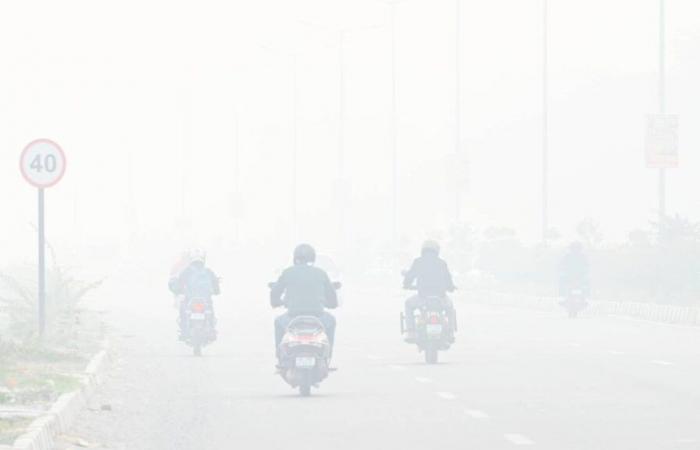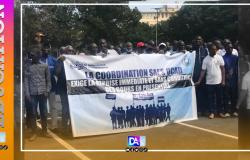Due to worsening air pollution, schools in New Delhi are holding classes remotely on Monday until further notice, by decision of the authorities, with the exception of two high school levels.
“Face-to-face classes will be interrupted for all students except for levels 10 and 12” corresponding to two years of high school, Chief Minister Atishi, who only goes by one name, said in a statement Sunday evening.
Levels of PM 2.5 particles, which had reached figures 57 times higher than the recommendations of the World Health Organization in New Delhi the day before, remained 39 times beyond the desired thresholds at dawn on Monday, according to the statements from the company IQAir. PM 2.5 particles are carcinogenic and enter the bloodstream through the lungs.
In the morning, New Delhi was enveloped in thick gray smog. The phenomenon, attributed in particular to the burning of stubble in fields in neighboring regions before plowing, to factories and road traffic, recurs every year. The capital and its metropolitan area (30 million inhabitants) are constantly at the top of the ranking of the most polluted cities in the world in winter.
Authorities urged to act
Primary schools had already had to organize their lessons remotely since Thursday. Officials hope homeschooling will help contain traffic, with the goal of preventing air quality from “deteriorating further.”
On Monday, in addition to the closure of the majority of classes, other measures were taken including restrictions on construction sites and the movement of diesel trucks.
The government has also called on children, the elderly and all those suffering from pulmonary and/or cardiac pathologies to “stay indoors as much as possible”. Many residents of the capital cannot afford an air purifier and live in housing that is poorly sealed from the stale air from outside, responsible for thousands of premature deaths each year.
Lower temperatures and weak winds in winter, which lasts from mid-October until at least January in India, intensify pollution by fixing dangerous particles in place.
In October, India’s Supreme Court ruled that access to clean air was a fundamental right, ordering central and state governments to act.






